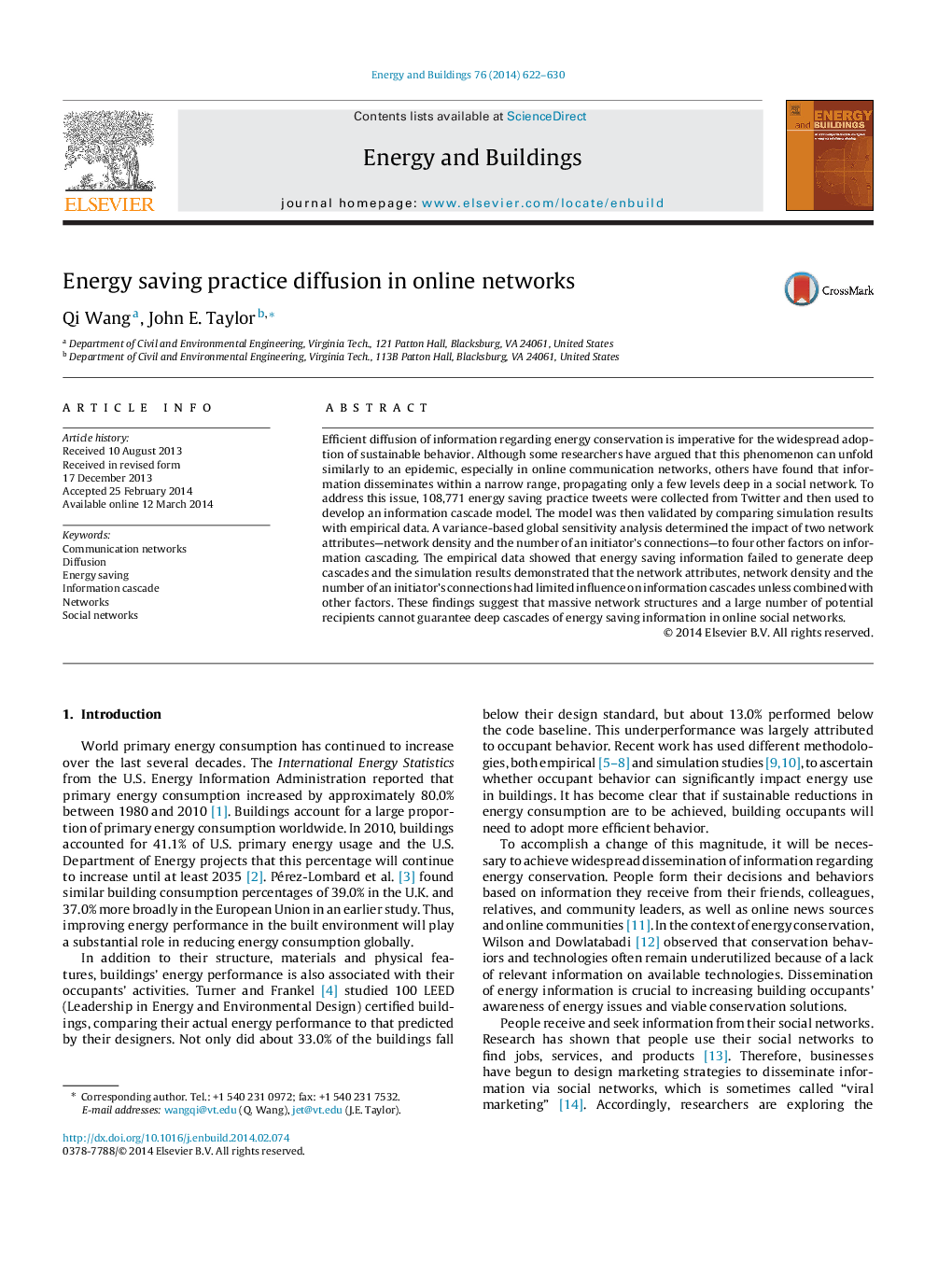| Article ID | Journal | Published Year | Pages | File Type |
|---|---|---|---|---|
| 6733948 | Energy and Buildings | 2014 | 9 Pages |
Abstract
Efficient diffusion of information regarding energy conservation is imperative for the widespread adoption of sustainable behavior. Although some researchers have argued that this phenomenon can unfold similarly to an epidemic, especially in online communication networks, others have found that information disseminates within a narrow range, propagating only a few levels deep in a social network. To address this issue, 108,771 energy saving practice tweets were collected from Twitter and then used to develop an information cascade model. The model was then validated by comparing simulation results with empirical data. A variance-based global sensitivity analysis determined the impact of two network attributes-network density and the number of an initiator's connections-to four other factors on information cascading. The empirical data showed that energy saving information failed to generate deep cascades and the simulation results demonstrated that the network attributes, network density and the number of an initiator's connections had limited influence on information cascades unless combined with other factors. These findings suggest that massive network structures and a large number of potential recipients cannot guarantee deep cascades of energy saving information in online social networks.
Related Topics
Physical Sciences and Engineering
Energy
Renewable Energy, Sustainability and the Environment
Authors
Qi Wang, John E. Taylor,
